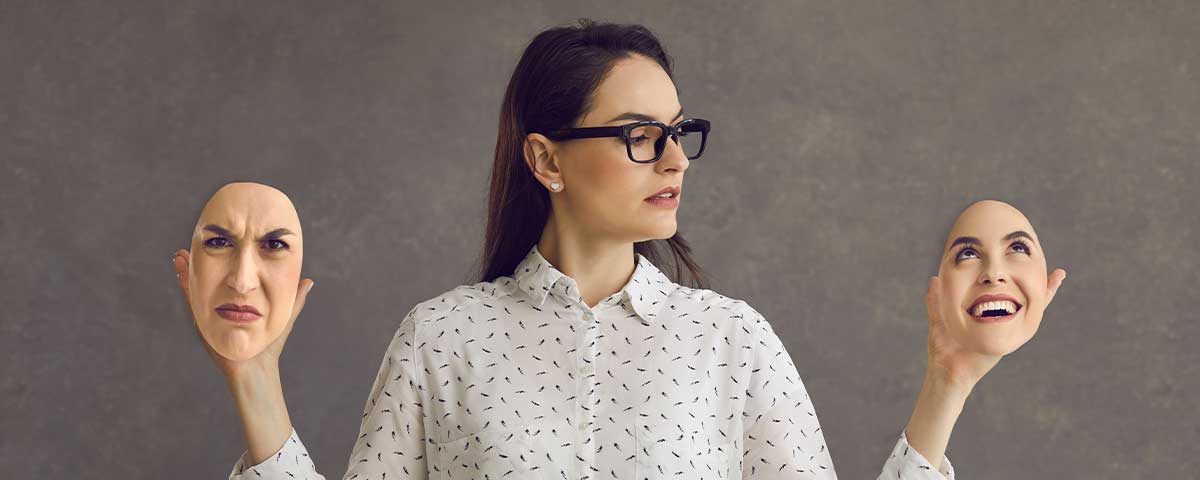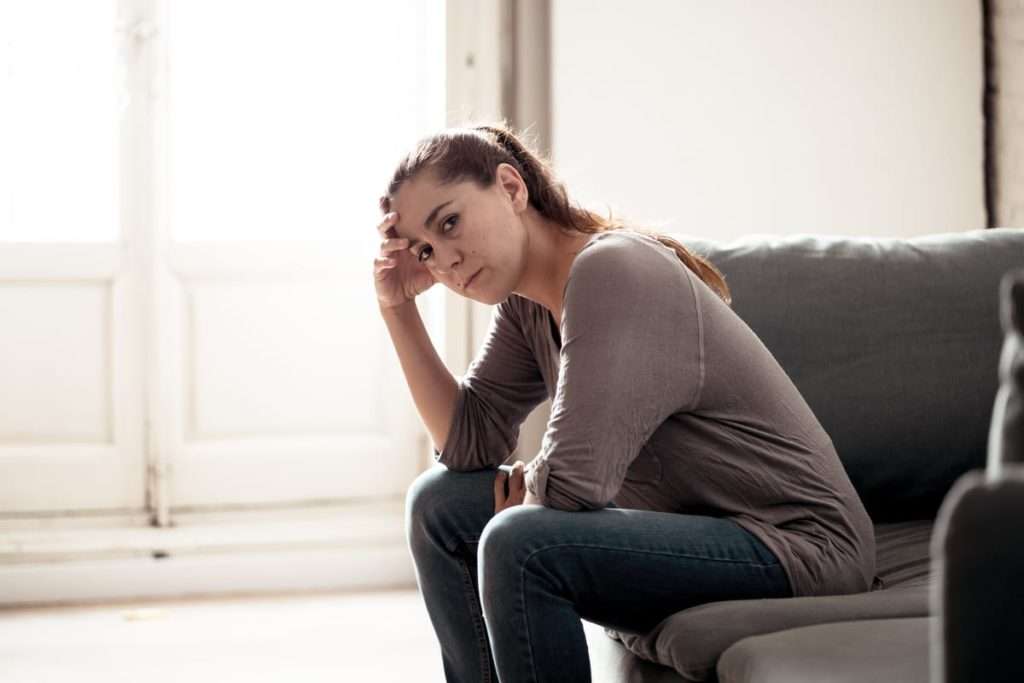Depression is a complex condition. There are various kinds of depression, the most common being situational, in which a person goes through a depression episode due to a specific life experience. In contrast, unipolar depression, and bipolar disorder (or depression) are considered genetic, medical conditions that don’t have specific causes and can happen to anyone at any time. Today we wanted to offer a guide on unipolar depression vs. bipolar depression to break down common misconceptions and help those showing signs of these conditions find the appropriate care.
What Are Bipolar Disorder and Unipolar Depression?
Bipolar Disorder (Depression)
Previously known as manic depression, bipolar disorder is a mental health disorder marked by extreme fluctuations in mood ranging from manic highs to depressive lows. In people with bipolar disorder or depression, emotional highs are known as mania or hypomania, while emotional lows are referred to as depression. The cause of bipolar disorder is believed to be a combination of genetics, environment, and altered chemical structure in the brain.
Bipolar disorder symptoms fluctuate depending on the emotional episode the person is experiencing. For instance, common symptoms of mania in bipolar disorder include:
- Being abnormally upbeat
- Increased activity or energy
- Easily agitated or annoyed
- An exaggerated sense of well-being and self-confidence
- Unusual talkativeness
- Racing thoughts
- Decreased need for sleep
- Easily distracted
- Poor decision-making, such as going on shopping sprees or gambling large amounts of money
As you can see, manic episodes are marked by an increase in energy levels, while symptoms of depressive episodes in bipolar disorder include:
- Feelings of sadness, emptiness, hopelessness, or frequent crying
- Marked loss of interest or feeling no pleasure in almost all or all activities
- Significant, unintentional weight loss
- Either trouble sleeping or sleeping too much
- Either restlessness or slowed behavior
- Fatigue or loss of energy
- Feelings of worthlessness or excessive or inappropriate guilt
- Impaired concentration and decision making
- Suicidal thoughts, ideation, or attempts
There are various types of bipolar disorder, each of which varies in symptom occurrence and duration. The timing of symptoms may include mixed or rapid cycling, as well. While bipolar depression doesn’t have a cure, it can be treated and managed with the right help. Our mental health facility provides bipolar disorder treatment that could help you or a loved one recover and find your footing in recovery.
Unipolar Depression
Unipolar depression is another name for major depressive disorder. People with major depressive disorder may experience periods of remission between episodes of depression. Unipolar depression is one of the most common mental health disorders and is marked by symptoms like:
- Feelings of sadness, emptiness, or hopelessness
- Loss of pleasure or joy in activities
- Weight or appetite changes
- Fatigue or lack of energy
- Difficulties sleeping or sleeping too much
- Thoughts of death or suicide
- Difficulties concentrating and decision making
Major depression is known for severely impairing a person’s ability to work, go to school, socialize, and keep up with responsibilities at home. For these reasons, other symptoms of depression may include trouble getting or keeping a job, relationship problems, difficulties studying or performing at school, and difficulties with hygiene and self-care.
Fortunately, as with bipolar disorder, Banyan’s mental health program in Boca Raton also provides depression treatment. We incorporate evidence-based therapy methods like cognitive behavioral therapy (CBT) to help clients understand the source of their conditions and develop healthy coping strategies for their symptoms.
Bipolar Depression vs. Unipolar: How Are They Different?
Distinguishing bipolar from unipolar depression is important not only to break down misconceptions regarding both conditions but also to potentially help people experience symptoms of either better understand what they’re going through. A misdiagnosed mental disorder can lead to dangerous consequences, so it’s important to not only do your research but to seek out the help of a healthcare professional the moment you realize any symptoms.
With that said, comparisons of unipolar depression vs. bipolar depression have been studied for years. In the end, the main difference between unipolar depression and bipolar depression (disorder) is that unipolar depression does not include periods of abnormally elevated mood, while bipolar disorder/depression includes both depressive and manic moods.
Is Bipolar Depression Worse Than Unipolar Depression?
There’s no way to say which is worse than the other. Both major and bipolar depression is challenging to manage for various reasons. However, bipolar depression is more episodic than unipolar, which can be stressful on both the individual and the people around them.
Agitation and impulsivity, which are common behaviors in people with bipolar disorder, can add a level of stress that a person with depression may not experience. People with bipolar disorder may go on excessive shopping or gambling sprees during manic episodes or feel the need to take out a huge loan for a sudden business idea.
Help for Bipolar and Unipolar Depression
In the end, neither bipolar disorder nor unipolar depression is worse than the other. Both can be challenging conditions to manage without professional mental health treatment.
If you or someone you care about is showing signs of either condition, we offer a residential mental health program in Boca Raton, FL, that offers a safe and comfortable environment where patients can recover from their symptoms and learn how to properly manage them. By housing clients in this program, we remove them from the distractions of their everyday lives to get down to the source of their disorders and help them find peace and healing.
Lasting recovery is possible. Call Banyan Treatment Center today at 888-280-4763 to find out how we can get you there.
Related Reading:
What is the Difference Between Bipolar 1 and Bipolar 2?
Dating Someone with Bipolar Disorder
Famous People with Bipolar Disorder
 Bipolar disorder and major depression share some similarities. They are sometimes confused because both can include depressive episodes, but there are some key differences.
Bipolar disorder and major depression share some similarities. They are sometimes confused because both can include depressive episodes, but there are some key differences.
The main difference between the two is that depression is unipolar, meaning that there are no periods of abnormally elevated mood, while bipolar disorder includes symptoms of mania.
In a recent article for PsychCentral, Sonya Matejko explored the distinction between the two conditions. “To put it simply, unipolar depression is another name for major depressive disorder (MDD), also known as clinical depression,” she wrote. “This mood disorder is characterized by a persistent feeling of sadness or a lack of interest in things that you used to enjoy.”
According to the current edition of the Diagnostic and Statistical Manual of Mental Disorders (DSM-5) used by psychiatrists to diagnose mental health conditions patients must experience the following to receive an MDD (unipolar depression) diagnosis:
-
symptoms for two weeks or longer
-
episodes of depression or significant loss of interest, or both
-
a change in the way you previously functioned
Diagnostic criteria include experiencing five or more of the following symptoms in a two-week period:
-
feeling sad or irritable
-
trouble falling asleep
-
feeling worthless or guilty
-
intense feelings of restlessness
-
change in appetite or sudden weight loss
-
lack of energy or unusual sense of tiredness
-
loss of interest in activities you once enjoyed
-
difficulty with decision making or concentrating
-
having thoughts about self-harming
In unipolar depression, there is one prolonged mood episode—a major depressive episode, i.e. a period characterized by symptoms of major depressive disorder. “This is in comparison with other mental health conditions, like bipolar disorder, which may lead you to experience changes in your mood, from depression to mania, an elevated mood state,” wrote Matejko.
Bipolar depression, on the other hand, is a term used to describe depression within bipolar disorder. It’s not so much a condition by itself but rather a symptom of depression for someone living with bipolar disorder.
According to the American Psychiatric Association, “people with bipolar disorder experience intense emotional states that typically occur during distinct periods of days to weeks, called mood episodes. These mood episodes are categorized as manic/hypomanic (abnormally happy or irritable mood) or depressive (sad mood). People with bipolar disorder generally have periods of neutral mood as well.”
The National Institute of Mental Health lists three types of bipolar disorder:
Bipolar I disorder is defined by manic episodes that last at least seven days, or by manic symptoms that are so severe that the person needs immediate hospitalization. Usually, depressive episodes occur as well, typically lasting at least two weeks. Episodes of depression with mixed features (having depressive symptoms and manic symptoms at the same time) are also possible.
Bipolar II disorder is defined by a pattern of depressive episodes and hypomanic episodes, but not the full-blown manic episodes that are typical of bipolar I disorder.
Cyclothymic disorder (also called cyclothymia) is defined by periods of hypomanic symptoms as well as periods of depressive symptoms lasting for at least two years in adults. However, the symptoms do not meet the diagnostic requirements for a hypomanic episode and a depressive episode.
All three types involve clear changes in mood, energy, and activity levels. These moods range from periods of extremely “up,” elated, irritable, or energized behavior (known as manic episodes) to very “down,” sad, indifferent, or hopeless periods (known as depressive episodes). Less severe manic periods are known as hypomanic episodes.
It is primarily the alternation between mood episodes that differentiates bipolar depression from unipolar or clinical depression. The most significant difference is that the latter does not include episodes of mania as a major symptom.
Colorado Recovery provides the services needed to address schizophrenia, bipolar disorder, and other serious mental illnesses which are specific to each individual. Call us at 720-218-4068 to discuss treatment options for you or the person you would like to help.




